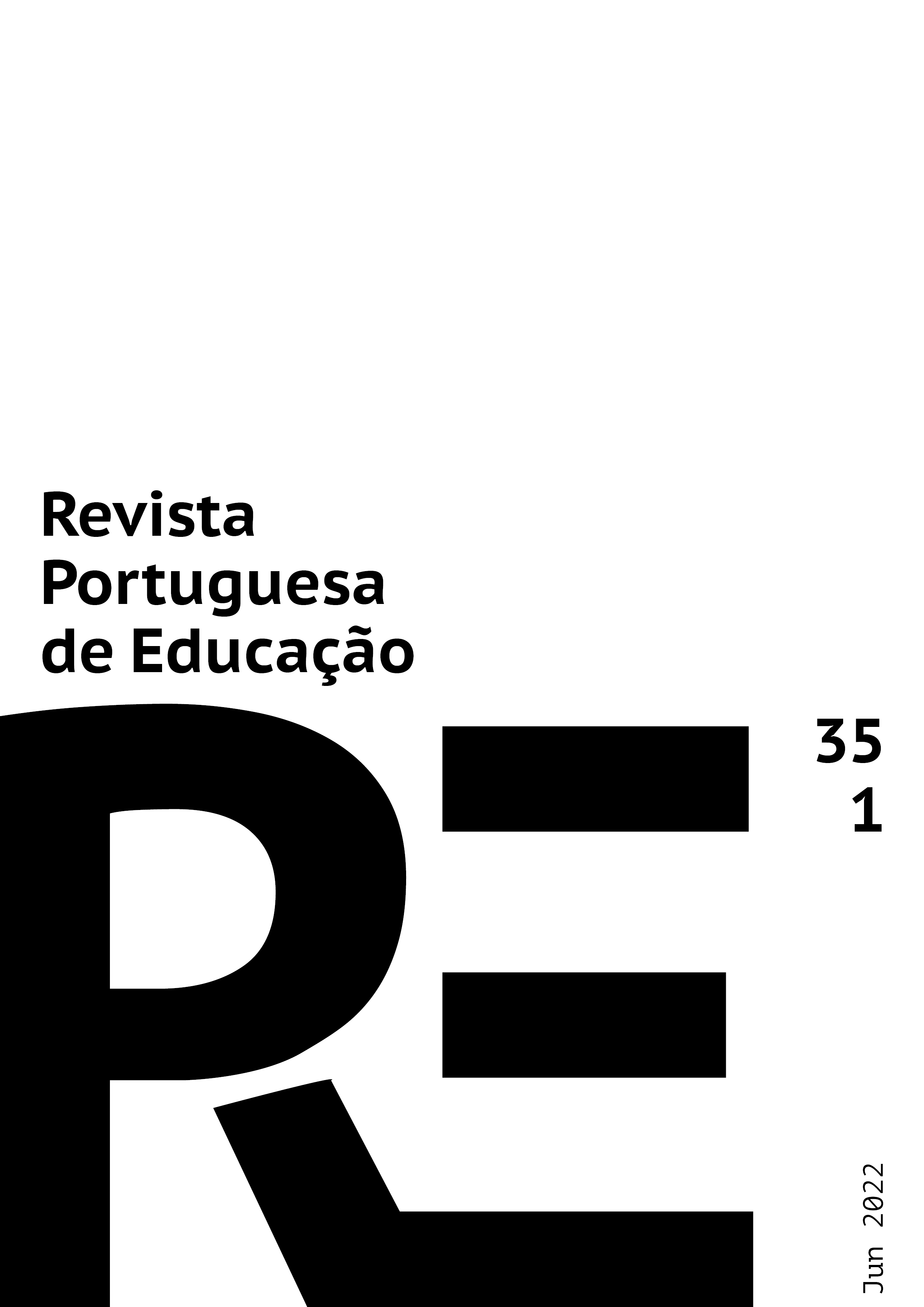About letters and research methods: Experimentation and prudence as research ethos
DOI:
https://doi.org/10.21814/rpe.21065Keywords:
Educational research, Experimentation, Prudence, Gilles Deleuze, Félix GuattariAbstract
The aim of this article is to understand the intricate relationship between the notions of experimentation and prudence in the Capitalism & Schizophrenia collection, written by Gilles Deleuze and Félix Guattari, as well as the ways in which each volume operationalized its thinking endeavors based on some methodological elements of the joint work of the authors. This discussion, which can be conducted both through the analysis of the letters exchanged between Deleuze and Guattari during the elaboration of Capitalism & Schizophrenia, as well as by reading the notes compiled by Guattari at the same time, can greatly contribute to the work of researchers interested in the deleuzian and/or deleuze-guattarian theoretical-conceptual input, especially in the educational field. Therefore, this article intends to contribute to methodological discussions in education that, based on the philosophy of Deleuze and Deleuze-Guattari, are concerned with the construction of a research ethos, rather than a research method. To do so, an overview of the appropriations of this idea of experimentation by contemporary Brazilian educational research is presented, in order to improve the discussion on the relationship between the notions of prudence and experimentation in Capitalism & Schizophrenia. We focus on Deleuze and Guattari's own work method, with a view to extracting methodological problematizations that can be strategic for researchers, with regard to ways of dealing with problems, in education.
Downloads
References
Aquino, J. G. (2015). A crítica educacional como recusa à metafísica pedagógica. Revista de Educação Pública, 24(56), 351-364. https://doi.org/10.29286/rep.v24i56.2438
Cardoso, L. R., & Paraíso, M. A. (2013). Possibilidades de uma metodologia alquimista para pesquisar em educação e em currículo. E-curriculum, 11(1), 270-290. https://revistas.pucsp.br/index.php/curriculum/article/view/8121
Costa, M. V. (2007). Introdução. In M. V. Costa (Org.), Caminhos investigativos I: Novos olhares na pesquisa em educação (pp. 13-22). Lamparina Editora.
Cusset, F. (2008). Filosofia francesa: A influência de Foucault, Derrida, Deleuze & cia. Artmed.
Deleuze, G. (2003). Deux régimes de fous: Textes et entretiens (1975-1995). Les Éditions de Minui.
Deleuze, G. (2007). Conversações: 1972-1990. Editora 34.
Deleuze, G. (2010). Proust e os signos. Forense Universitária.
Deleuze, G. (2016). Dois regimes de loucos: Textos e entrevistas (1975-1995). Editora 34.
Deleuze, G. (2018). Cartas e outros textos. N-1 Edições.
Deleuze, G., & Guattari, F. (1992). O que é a filosofia? Editora 34.
Deleuze, G., & Guattari, F. (1995). Mil platôs: Capitalismo & Esquizofrenia (vol. 1). Editora 34.
Deleuze, G., & Guattari, F. (2007). Mil platôs: Capitalismo & Esquizofrenia (vol. 3). Editora 34.
Deleuze, G., & Parnet, C. (2004). Diálogos. Relógio D’Água.
Dosse, F. (2010). Gilles Deleuze & Félix Guattari: Biografia cruzada. Artmed.
During, E. (2007). Blackboxing in theory: Deleuze versus Deleuze. In S. Lotringer & S. Cohen (Org.), French theory in America (pp. 191-216). Routledge.
Foucault, M. (2008). Ditos & Escritos II: Arqueologia das ciências e história dos sistemas de pensamento. Forense Universitária.
Foucault, M. (2010). Ditos & Escritos VI: Repensar a política. Forense Universitária.
Guattari, F. (2006). The anti-Oedipus papers. Semiotext(e).
Heuser, E. M. (Org.). (2011). Cadernos de notas 1: Projeto, notas & ressonâncias. EdUFMT.
Hillesheim, B., Bernardes, A. G., & Medeiros, P. F. (2009). Leitura de uma onda: Pesquisa e observação. Educação & Realidade, 34(3), 213-224.
Norgeu, A. (2006). La Borde: Le château des chercheurs de sens? La vie quotidienne à la clinique psychiatrique de La Borde. Erès.
Passos, E., Kastrup, V., & Escóssia, L. (Orgs.). (2012). Pistas do método da cartografia: Pesquisa-intervenção e produção de subjetividade. Sulina.
Ribeiro, C. R. (2011). “Pensamento do fora”, conhecimento e pensamento em educação: Conversações com Michel Foucault. Educação & Pesquisa, 37(3), 613-628. https://doi.org/10.1590/S1517-97022011000300011
Silbertin-Blanc, G. (2010). Deleuze et l’Anti-Oedipe: La production du désir. PUF.
Soulié, C. (2012). Un mythe à détruire? Origines et destin du centre universitaire experimental de Vincennes. Presses Universitaires Vincennes.
Uno, K. (2016). Guattari: Confrontações –Conversas com Kuniichi Uno e Laymert Garcia dos Santos. N-1 Edições.
Vinci, C. F. R. G. (2018). O conceito de experimentação na filosofia de Gilles Deleuze. Sofia, 7(2), 322-342. https://doi.org/10.47456/sofia.v7i2.20467
Vinci, C. F. R. G., & Ribeiro, C. R. (2015). Implicações midiáticas e acadêmicas nos modos de apropriação do pensamento de Gilles Deleuze e Félix Guattari para o debate em educação no Brasil. ETD - Educação Temática Digital, 17(1), 125-141. https://doi.org/10.20396/etd.v17i1.8634822
Vinci, C. F. R. G., & Ribeiro, C. R. (2018). Experimentações com a pesquisa educacional deleuze-guattariana no Brasil. Educação & Realidade, 43(1), 23-44. https://doi.org/10.1590/2175-623660813
Downloads
Published
How to Cite
Issue
Section
License
Copyright (c) 2022 Portuguese Journal of Education

This work is licensed under a Creative Commons Attribution-ShareAlike 4.0 International License.
1. The authors preserve their authorship and grant the Portuguese Journal of Education the right to the first publication. The work is licensed under Creative Commons Attribution License that allows sharing the work with the acknowledgment of initial authorship and publication in this Journal.
2. The authors have the right to take additional contracts separately, for non-exclusive distribution of the published version of their work (e.g. to deposit in an institutional repository or as a book chapter), acknowledging the initial authorship and publication in this Journal.
3. The authors have the permission and are stimulated to post their work online (e.g. in an institutional repository or on their personal website). They can do this at any phase of the editorial process, as it may generate productive changes, as well as increase impact and article citation (see The Open Citation Project).
The work is licensed under Attribution-ShareAlike 4.0 International (CC BY-SA 4.0)




















